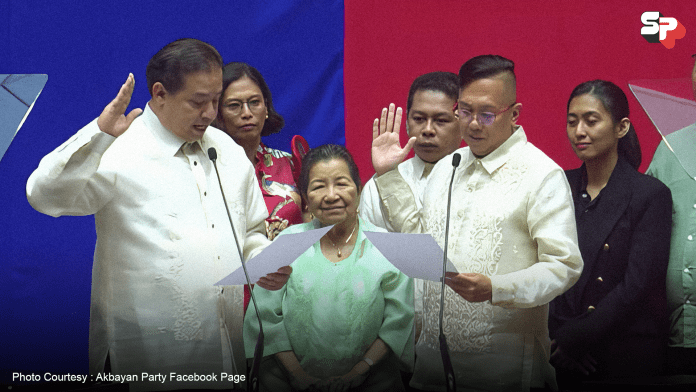The Akbayan Party was officially sworn in before the House of Representatives on Wednesday, marking its return to Congress after a five-year absence. Incoming Akbayan Representative Perci Cendaña described this moment as a significant milestone for the progressive political party, noting that Akbayan is now the only democratic left and progressive group to successfully recover from a party-list electoral defeat.
Cendaña expressed gratitude to the party’s supporters, stating, “We recognize the historic comeback of Akbayan to Congress, especially given the challenges faced by us and other democratic and progressive groups in the party-list elections. Although many worked hard to return, Akbayan is fortunate to have won and come back to Congress. We extend our deepest thanks to our voters, members, supporters, and allied groups for this victory.”
He also highlighted the significance of Akbayan’s return, stating that the party will now hold the record for the longest-serving party-list organization since its inception in the first party-list elections in 1998.
In his address, Cendaña emphasized Akbayan’s commitment to addressing human rights abuses, particularly focusing on accountability for the Duterte administration. He stated, “Akbayan will ensure that those who have committed human rights violations and mismanaged public resources are held accountable for their actions. We will not allow the abuse of our rights and democratic institutions to go unpunished. The Dutertes, their allies, and all those who exploit and corrupt must prepare for scrutiny.”
Cendaña, who serves as Akbayan’s first nominee, is a former Commissioner of the National Youth Commission. Before his government service, he was an active leader within the student movement and the LGBTQI community, notably becoming the first openly gay chairperson of the University of the Philippines – Diliman Student Council. He is a known advocate for the SOGIE Equality Bill.
Throughout its over two decades in the House of Representatives, Akbayan has contributed to the passage of several landmark laws, including the Cheaper Medicines Act, the Safe Spaces Act, the Comprehensive Agrarian Reform Program Extension with Reforms (CARPER) Act, and the Sangguniang Kabataan (SK) Reform Law.

